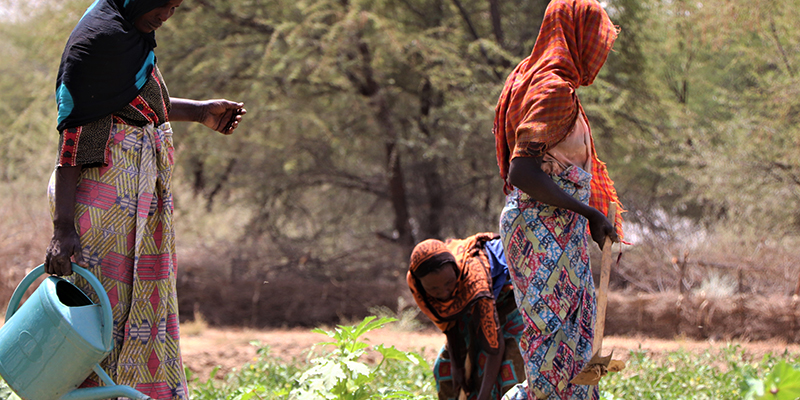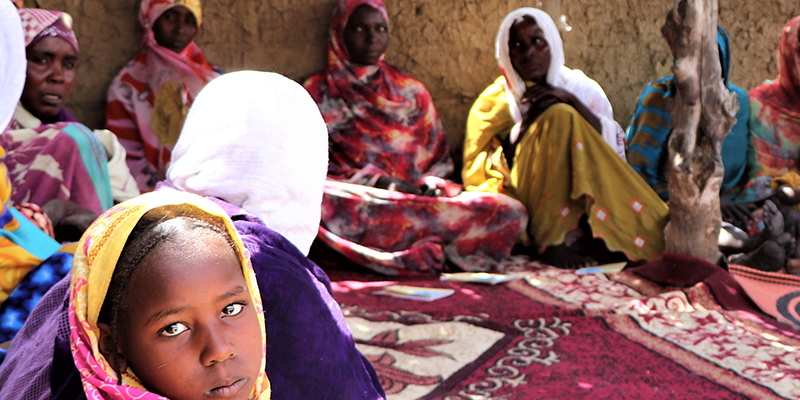With the hunger gap season approaching and during Ramadan, the ongoing pandemic and the measures taken to address threatens food security in Africa. It is particularly the case in the Sahel region, where security tensions already jeopardize the supply chains.
According to the Economic Community of West African States (ECOWAS), the Covid-19 pandemic could increase the number of food and nutrition insecure people in Western Africa from 17 to 50 million between June and August 2000. A joint study published on April 2, 2020 by the food security stakeholders in Sahel including the World Food Programme (WFP) shows that more than 5 million people will fall into food insecurity in Sahel only. The pandemic having provoked both a health emergency and a food security emergency, both must be treated in the same time.

A FOOD CRISIS OF MULTIPLE ORIGINS
The degradation of markets and prices due to the crisis ultimately impacts the very livelihood resources of populations. It will have a tremendous impact on the food and nutrition security of the most vulnerable on long and short term. The risk reduction measures include the closing of shops, the limited access to markets, curfew, the closing of borders and limitation of the exports, the diminution of monetary transfers from the diaspora, the closing of schools and canteens, and so on. As a matter of fact, these mitigation measures aiming to slow the virus’s spread disrupted the food supply chain and local availability – the latter being already reduced because of bad agricultural seasons in certain areas. The fight against Covid-19 already hinders the access to food, employment and revenues for the most vulnerable populations, as well as reducing access to farm input for the next season, already in the start-up phase. In addition, the plummeting of oil prices directly impacts the already fragile economies of the oil-exporting countries of the region, such as Nigeria and Chad.
A April 2020 report by the Malian government on food and nutrition security establishes that 3,5 million people are currently experiencing food insecurity, including 760,000 severe food insecurity. This represents an 107% increase compared to the 2019 hunger gap. This situation is expected to worsen due to the impacts of the Covid-19 pandemic.
In a context of security, economic and food crises, the forecasted impacts of Covid-19 in Cameroon are just as worrying. Massive internal migrations in certain areas of the countries these past years have exacerbated structural food insecurity, poverty and very limited access to basic services. According to current projections taking the current pandemic into account, around 16% of the population of the Far North is in a crisis and emergency situation (phases IPC 3 and 4) between April to December 2020. In the South-West and North-West of the countries, up to a third of the population will be impacted, respectively 33% and 34% in the same time span.
Furthermore, several NGO financial partners have redirected funds initially dedicated to other diseases to the fight against Covid-19, thereby reducing the available funds for diseases such as severe malnourishment.
TRANSHUMANCE: AT THE CORE OF FOOD CRISIS ISSUES
Crop and livestock farming are of a paramount importance in the fight against food insecurity and chronic hunger in the Sahel region. For instance, stockbreeding represents around 40% of the agricultural GDP of Sahelian countries and is strongly anchored to rural cultures and societies (OECD, 2008). This year, transhumance began as per usual in March, when the Covid-19 crisis was spreading. Some herders travelled hundreds of kilometers with their herds, looking for grazing lands and water in bordering countries, whereas others remained blocked because of the closing of some terrestrial borders. These restrictions, a corollary of the pandemic, coupled with a reduction in mobility already heavily impacted by conflicts and climatic hazards, have a direct impact on the displacements of these herders and their ability to supply their livestock.

SOLIDARITÉS INTERNATIONAL PROGRAMMES refunded to address the crisis
In this context, SOLIDARITÉS INTERNATIONAL commits to continue its actions alongside the vulnerable populations. In addition to strengthening our prevention measures against the spread of Covid-19 in our fields of operation and the development of specific actions to fight and monitor the pandemic, we adapted our livelihoods and food security programmes: increase in the number of beneficiaries of food assistance for the lean season, distribution of livestock feed, modalities and modes of distribution redesigned in compliance with social distancing measures, coupling of cash transfers to the distribution of water, hygiene and sanitation kits and to the rehabilitation of water points, etc.
In addition, SOLIDARITÉS INTERNATIONAL has signed the Oxfam appeal together with seven other humanitarian NGOs, calling every government to control prices, ensure the supply of food from family farms and the transport of goods to markets, and put in place social safety nets to help the most vulnerable. SOLIDARITÉS INTERNATIONAL also intensifies its participation to national early warning systems and in food, nutritional and health insecurity monitoring systems with humanitarian partners.
TO SUPPORT OUR ACTION IN AFRICA, DONATE
> DONATE
Translated by Tiffany Oudin-Dubois
